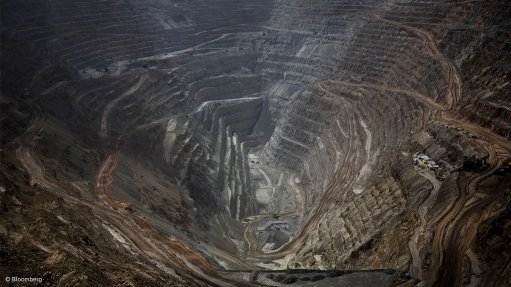
Copper producers are pushing back on Chile’s proposed tax overhaul, with Anglo American indicating it needs greater regulatory clarity before proceeding with major investments.
The tax package presented by the administration of President Gabriel Boric earlier this month would increase the effective tax rate by 10% to 15%, Stephen Pearce, London-based Anglo’s head of finance, said on an earnings call Thursday. That could lift the statutory rate to 46% to 56%, he said.
“That’s a significant increase in anyone’s language,” Pearce said. “And naturally it would play into our thinking both because of the change and then because of the absolute amounts as to how we would look to invest capital in the country and projects.”
Hours later, Lundin Mining executives told analysts that they see the bill as a “first proposal” that will require more discussion. The industry argues that the reforms as they stand would add uncertainty to investment decisions needed to help fill a global supply gap as demand rises in the clean-energy transition.
While Chile has the largest copper reserves, ore quality has been steadily falling, meaning mines need to move more rock to produce the same amount, pushing up costs.
To be sure, neither firm is holding back spending just yet, with the possibility of higher taxes far from the only consideration. In May, Chilean environmental regulators rejected a major project at Anglo’s Los Bronces mines in the mountains above Santiago, while a proposed constitutional rewrite would afford greater protections for glacial and other sensitive areas.
Still, Anglo is confident of successfully navigating the permitting process, CEO Duncan Wanbald said on the same call. Besides that project, Anglo is also looking at switching its trucking fleet in Chile to hydrogen-fueled, automated vehicles.
“Now as with any country that we operate in, we do require a relatively stable environment, both fiscally and politically, for us to be able to allocate capital to it in a meaningful sort of way,” Wanbald said. “There is a lot of stuff that needs to happen in Chile for that to be true for us again at the moment.”
The government bill includes a 1% to 2% tax on sales for companies that produce 50 000 to 200 000 metric tons of copper a year, and 1% to 4% for those that produce more than 200,000 tons. A second component is a sliding scale of between 2% and 32% on profits, which depends on copper prices. If approved, the changes would come into force partially in 2024 once tax stability contracts expire.